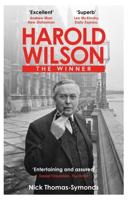Publisher's Synopsis
Even as a child, Suzanne Berne understood the source of her father's terrible melancholy: he'd lost his mother when he was a little boy. Decades later, with her father now elderly and ailing, she decides to try to uncover the woman who continues to haunt him.
Every family has a missing person, someone who died young or disappeared, leaving a legacy of loss. Aided by vintage photographs and a box of old keepsakes, Berne sets out to fill in her grandmother's silhouette and along the way uncovers her own foothold in American history.
Lucile Berne, née Kroger, was a daughter of Bernard Henry Kroger, the archetypal American self-made man, who at twenty-three established what is today's $76 billion grocery enterprise. From her turn-of-the-century Cincinnati childhood to her college years at Wellesley, her tenure as treasurer of her father's huge company, her stint as a relief worker in devastated France, her marriage to a professional singer, and the elusive, unhappy wealthy young matron she became, Lucile both illustrates and contradicts her times.
In the process of creating this portrait, Berne discovers the function of family history: "to explain what is essentially inexplicable-how we came to be ourselves."
Every family has a missing person, someone who died young or disappeared, leaving a legacy of loss. Aided by vintage photographs and a box of old keepsakes, Berne sets out to fill in her grandmother's silhouette and along the way uncovers her own foothold in American history.
Lucile Berne, née Kroger, was a daughter of Bernard Henry Kroger, the archetypal American self-made man, who at twenty-three established what is today's $76 billion grocery enterprise. From her turn-of-the-century Cincinnati childhood to her college years at Wellesley, her tenure as treasurer of her father's huge company, her stint as a relief worker in devastated France, her marriage to a professional singer, and the elusive, unhappy wealthy young matron she became, Lucile both illustrates and contradicts her times.
In the process of creating this portrait, Berne discovers the function of family history: "to explain what is essentially inexplicable-how we came to be ourselves."







